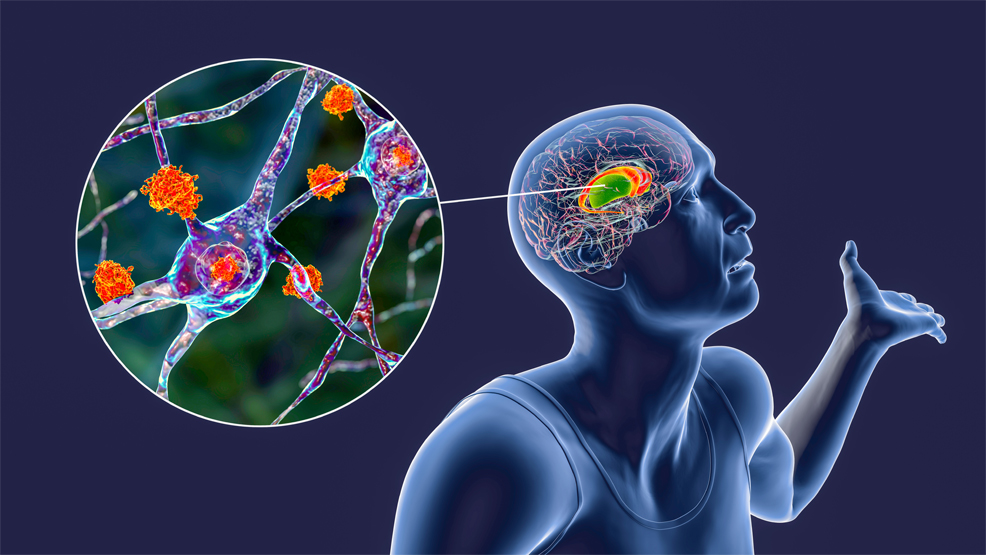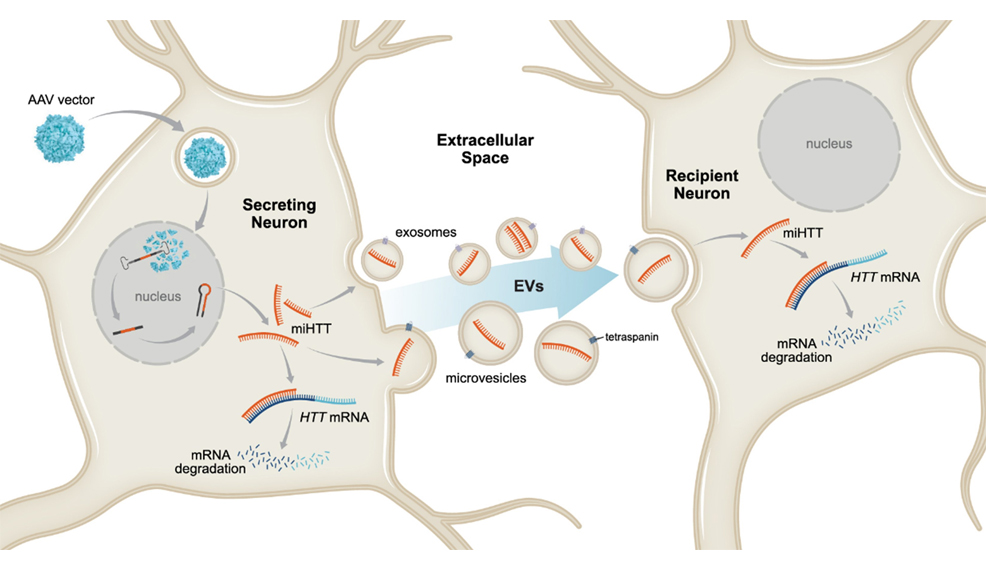
24th September 2025 Breakthrough in treatment of Huntington's disease A major breakthrough in treating Huntington's disease is reported today, with a new gene therapy able to slow its progression by 75%.
Huntington's disease is among the most tragic of genetic illnesses. Carried in a person's DNA, it causes a gradual loss of movement control, memory, reasoning, and emotional control. With onset usually starting between the ages of 30 and 50, it progresses over 15–20 years to complete dependency and eventually death. Because it is autosomal dominant, each child of an affected parent has a 50% chance of inheriting the fatal mutation. The worldwide prevalence is approximately 3.9 per 100,000 people, with cases more prevalent in Europe and North America than in Asia. Until now, no therapy has been able to slow its relentless decline. All approved treatments only manage symptoms such as chorea (involuntary, unpredictable, and often jerky muscle movements); none alter the disease's course. That makes today's announcement astonishing. In a pivotal Phase I/II trial, Dutch company uniQure and international collaborators report that a gene therapy called AMT-130 slowed Huntington's progression by a massive 75% relative to a control group. In addition to this headline result, researchers found even greater improvements in certain cognitive tests – with an 88% slower decline in a symbol-matching task (SDMT) and 113% improvement in a word-reading test (Stroop). A total of 29 patients received AMT-130 (17 on high dose, 12 on low dose), of which 12 in each dose group reached the full 36-month follow-up. Crucially, patients tolerated the therapy well, and no major side effects occurred. Professor Sarah Tabrizi, co-founder of the Huntington's Disease Centre at University College London (UCL), led the academic side. She described the results as "the most convincing in the field to date" and said "We never in our wildest dreams would have expected a 75% slowing of clinical progression." "This is the result we've been waiting for," said co-study lead Professor Ed Wild, a consultant neurologist at UCL. "There was every chance that we would never see a result like this, so to be living in a world where we know this is not only possible, but the actual magnitude of the effect is breathtaking, it's very difficult to fully encapsulate the emotion." AMT-130 works by using a harmless adeno-associated virus (AAV) to deliver genetic instructions directly into the striatum, the brain region most affected by Huntington's. These instructions trigger cells to produce micro-RNAs that silence the faulty huntingtin gene, reducing production of the toxic mutant huntingtin (mHTT) protein that drives the disease. Because doctors deliver the therapy once through a precise neurosurgical procedure, the goal is to provide a durable, long-lasting effect without the need for repeat dosing. According to Professor Tabrizi, this means the decline you would normally expect in one year would instead take four years after treatment, giving patients decades of good quality life.
The researchers noted that participants in the trial remained unusually stable. One medically retired patient even returned to work, while others in the trial are still walking despite being expected to need a wheelchair. Markets responded swiftly today, with uniQure's stock surging by more than 200%, reflecting investor belief in the therapy's commercial potential and its position as a first mover in gene therapy for Huntington's disease. This trial matters not just for Huntington's disease sufferers but for neurology as a whole. If a one-time gene therapy intervention can durably slow a degenerative brain disease, it opens the door to similar strategies in Parkinson's, Alzheimer's, ALS and beyond. In Q1 2026, uniQure plans to submit a Biologics License Application (BLA), with an anticipated U.S. launch later that year if approval is granted. Of course, challenges remain. Long-term safety, broader patient applicability, regulatory review and cost will all test the path forward. But today heralds a shift in possibility. We now have, for the first time, credible proof in humans that Huntington's disease progression can be materially slowed. If subsequent trials confirm and extend these findings, AMT-130 may become the first licensed treatment to alter the trajectory of a devastating neurodegenerative disease – and a flagship for the next era of gene therapy.
Comments »
If you enjoyed this article, please consider sharing it:
|
||||||








